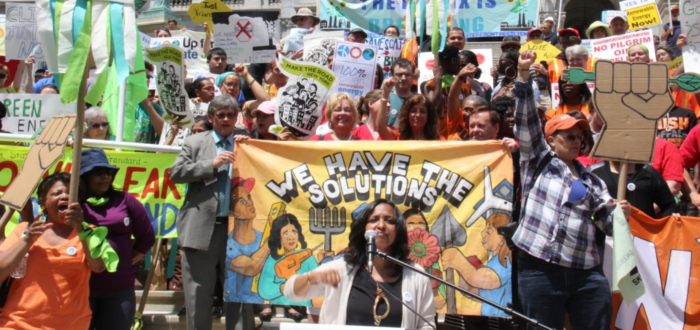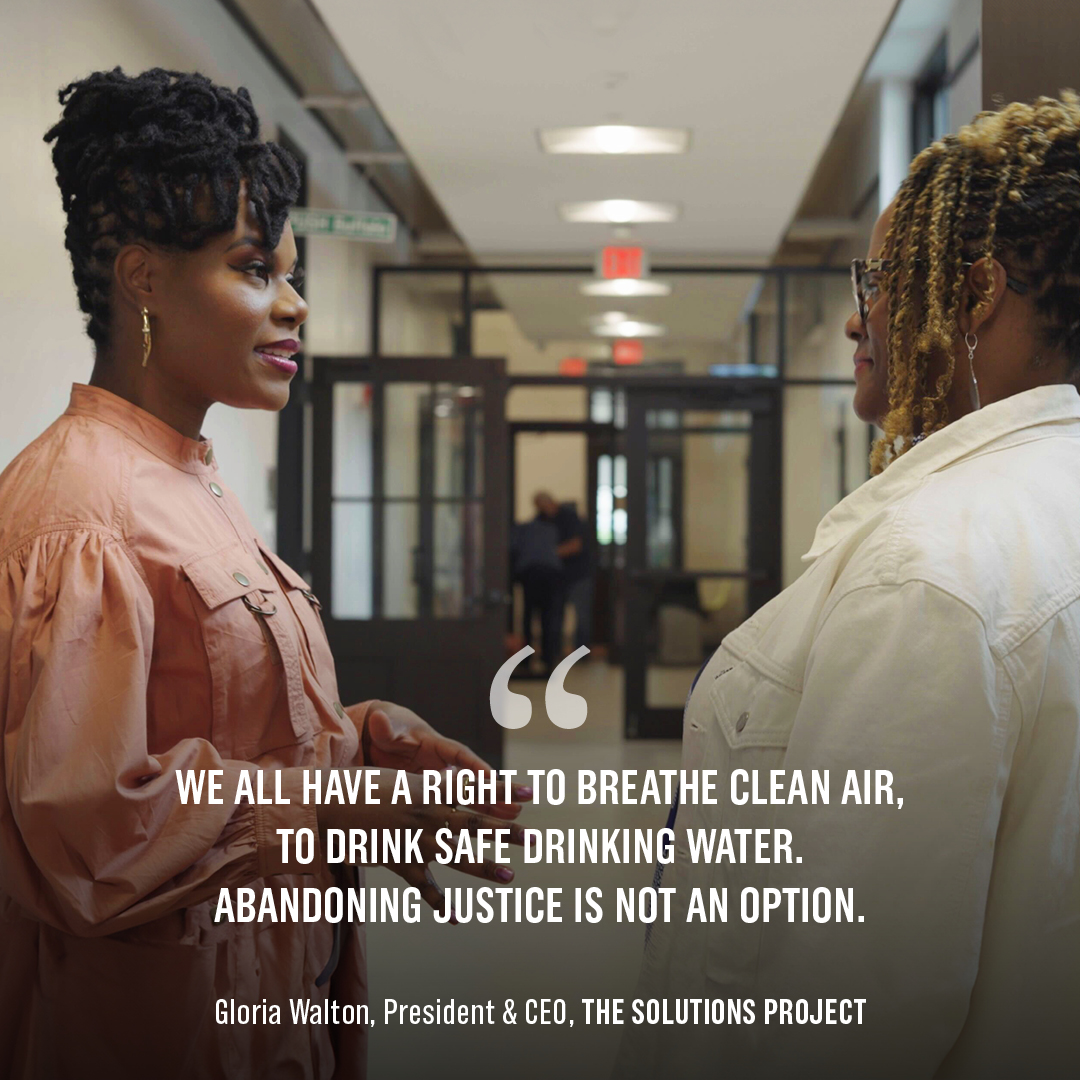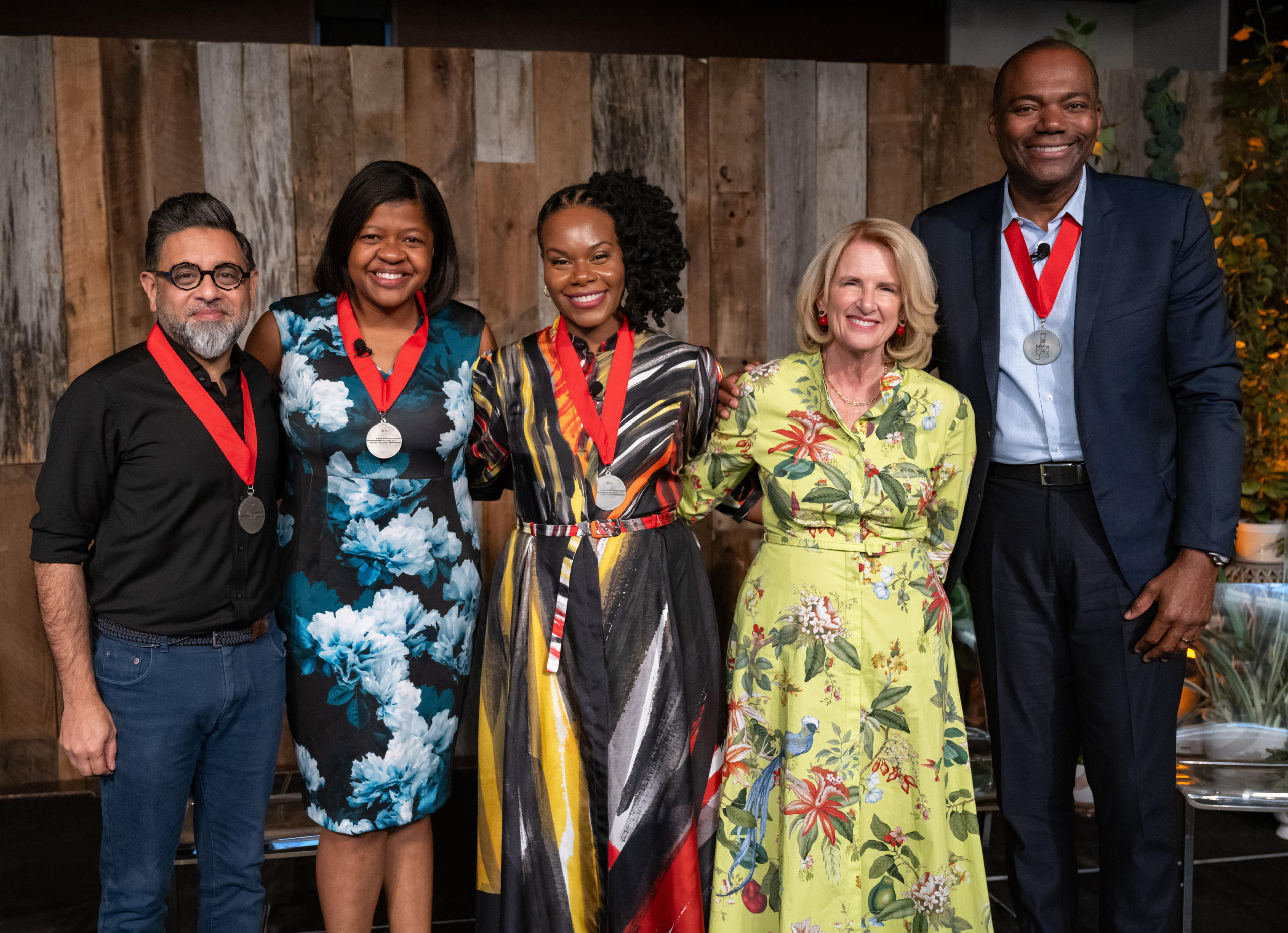

When I think about a moment in my leadership journey that led me to take on the challenge of climate justice, I trace it back to my formative years living with my grandmother. My grandmother was a farmer and she was someone who instilled my foundational values: a sense of community, collaboration, care, sharing, honesty, and love. She would have me, at three or four years old, run across the street with essentials like sugar, eggs, and milk for our neighbors, and she even carpooled to church with them. I grew up in poverty, though I didn’t realize it then because I was surrounded by so much love. The love that I was surrounded by is what drives the love I have for our communities.
Once I got older, I attended schools that were predominantly white. I started seeing how my friends were living compared to my family was living. This sparked my political consciousness, leading me to question, read, and reinterpret my history in a way that empowered me. Because ultimately, we have a choice to be empowered. Growing up in poverty made me passionate about finding pathways out of it, which led me to community organizing.
I started organizing in South Central Los Angeles, a predominantly Black and Brown, working-class community. While many in the community are low-income, South LA is also one of the most powerful communities I know. My initial focus was economic justice, driven by the desire to eradicate poverty, especially for communities of color disproportionately affected by it. Around 2004 or 2005, my colleagues and I researched the next growth sector, with a focus on job creation, and identified climate as an emerging sector, with the potential for trillions of dollars to flow into it. For us, it was about making sure that flow of resources doesn’t overlook communities that look like me.
I realized that while economic justice is an all-encapsulating issue, climate justice is the intersectional issue of our time, encompassing everyone and everything. It wasn’t just about jobs and the economy; it also encompassed air quality, water, transportation, agriculture, food justice, and more. Regardless of your focus, you can always connect it back to climate, because it’s not just about people, it’s also about our planet.

I know I can’t do this work alone. What gives me hope is knowing I’m not alone and that I’m connected to grassroots movements for change. Our movements are leaderful, resolute, and victorious, which energizes me. They’re rooted in love, where we see each other’s full humanity, lend a helping hand, and check in with each other. Those are the things that get me through, that sustain me in this work.
Gloria Walton, President & CEO of The Solutions Project